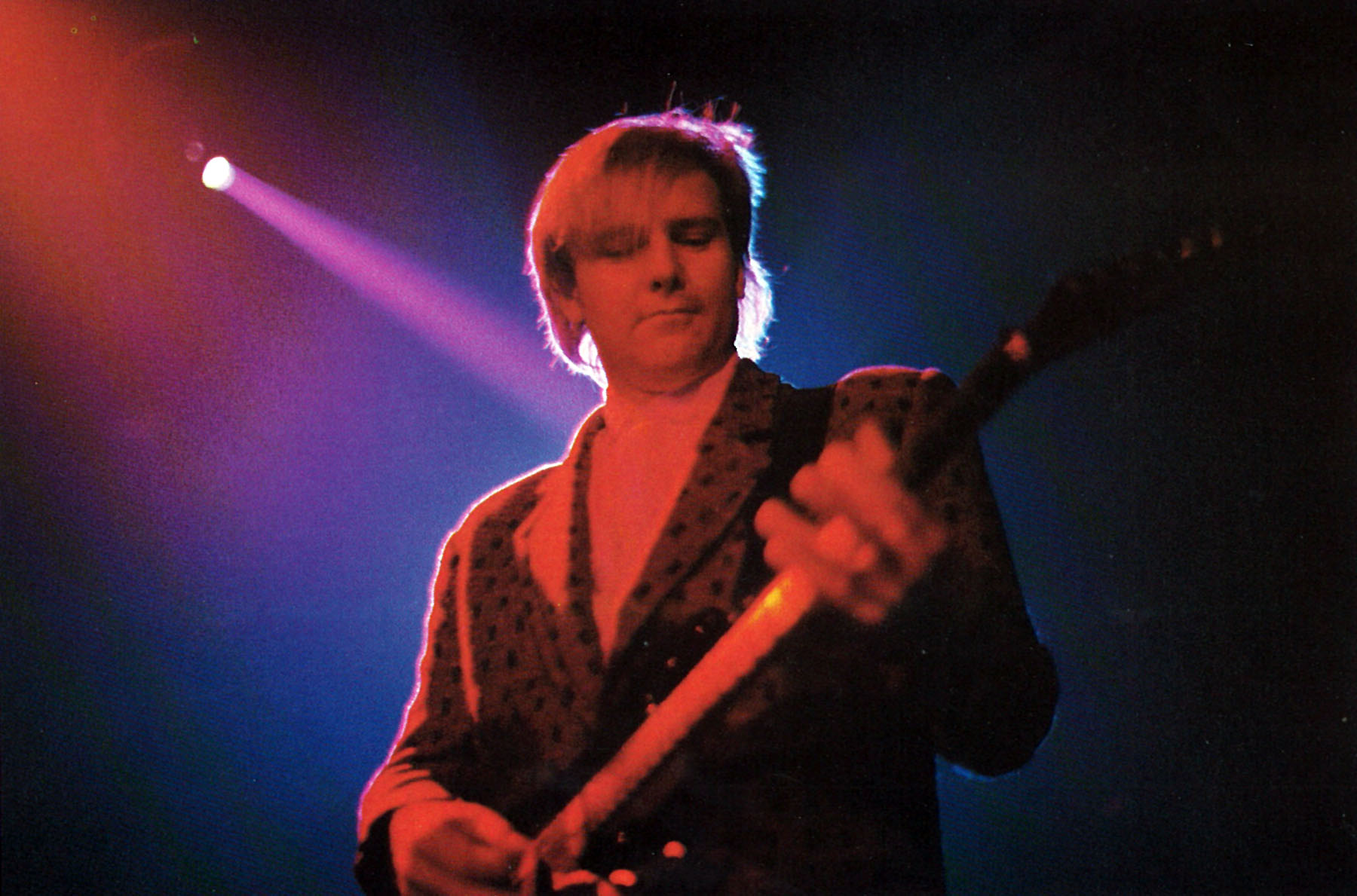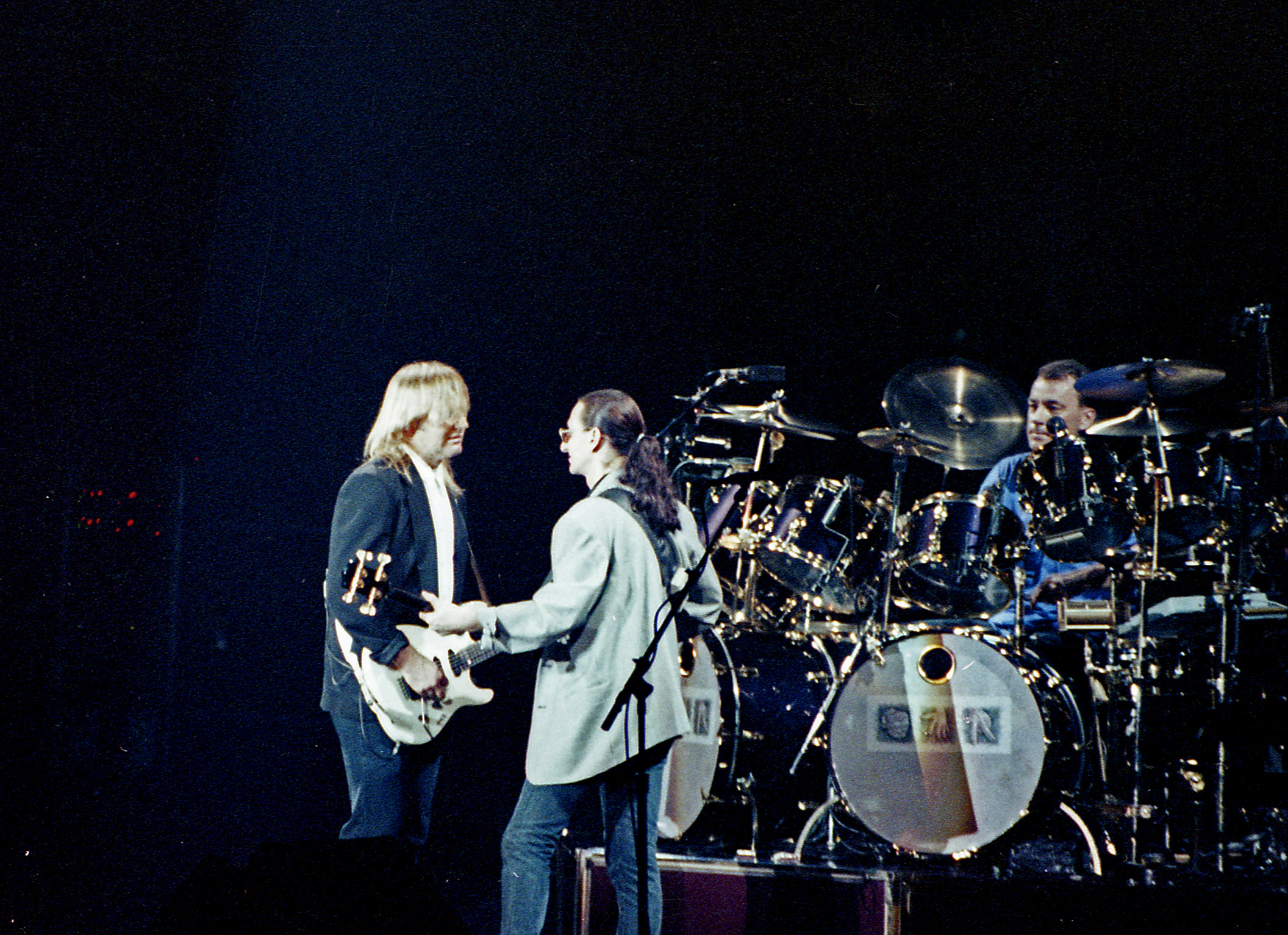 Rush hit a tiny speed bump in their career, it was only a matter of time. Luckily, this creative misfire wasn’t even close to stopping Rush’s creative output and in 1989, as the eighties were nearing their conclusion, the band released their final record in the decade that showcased them at their most prolific and creative. With a switch to a new record label, the legendary Atlantic Records, and a new producer at the helm, Rupert Hine, the band was ready to close out the decade in a strong fashion. The big question though was if the trio was going to learn from the mistakes that plagued “Hold Your ”? The answer:...kind of…
Rush hit a tiny speed bump in their career, it was only a matter of time. Luckily, this creative misfire wasn’t even close to stopping Rush’s creative output and in 1989, as the eighties were nearing their conclusion, the band released their final record in the decade that showcased them at their most prolific and creative. With a switch to a new record label, the legendary Atlantic Records, and a new producer at the helm, Rupert Hine, the band was ready to close out the decade in a strong fashion. The big question though was if the trio was going to learn from the mistakes that plagued “Hold Your ”? The answer:...kind of…
 The album opens with “Show Don’t Tell”, and it kicks off with Alex Lifeson delivering a nice crunchy riff, and it shows the band kind of returning to stronger guitar presence, or at least one that isn’t as clean as what was exhibited on previous releases. There are still keyboards on this track, and on the album as a whole, but they seem to be scaled back on this release than on previous outings. Other examples of this creative direction are exhibited on the title track, which has a very nice implementation of acoustic guitar with the keyboards helping as a nice backdrop, instead of being at the front of the song’s compositional structure. Geddy Lee’s bass also seems to have a deeper groove than what was showcased on previous releases, giving some much needed weight to many of the tracks, particularly on the haunting warning of the dangers of romanticizing teenage suicide, “The Pass”. When the keyboards are implemented, it’s in a much more tasteful fashion, such as in the beautiful closer “Available Light”, with a direction that almost seems to veer into the realms of classical to a degree. In addition, the last three tracks of this album are a damn good progression of killer song after another, with “Red Tide” with it’s beautiful guitar riff, and high energy, making it the stand out of the album. So by all accounts this seems like a better record than “Hold Your Fire”, though it’s only slightly better.
The album opens with “Show Don’t Tell”, and it kicks off with Alex Lifeson delivering a nice crunchy riff, and it shows the band kind of returning to stronger guitar presence, or at least one that isn’t as clean as what was exhibited on previous releases. There are still keyboards on this track, and on the album as a whole, but they seem to be scaled back on this release than on previous outings. Other examples of this creative direction are exhibited on the title track, which has a very nice implementation of acoustic guitar with the keyboards helping as a nice backdrop, instead of being at the front of the song’s compositional structure. Geddy Lee’s bass also seems to have a deeper groove than what was showcased on previous releases, giving some much needed weight to many of the tracks, particularly on the haunting warning of the dangers of romanticizing teenage suicide, “The Pass”. When the keyboards are implemented, it’s in a much more tasteful fashion, such as in the beautiful closer “Available Light”, with a direction that almost seems to veer into the realms of classical to a degree. In addition, the last three tracks of this album are a damn good progression of killer song after another, with “Red Tide” with it’s beautiful guitar riff, and high energy, making it the stand out of the album. So by all accounts this seems like a better record than “Hold Your Fire”, though it’s only slightly better.
The biggest problem with this record is the production. The sound is so thin, lacks any kind of the classic Rush punch, particularly on the drums. It sounds as if Peart is hitting water with his sticks, with Lifeson’s guitars being buried under the mix and when it does become audible they just don’t have the power or the push that was previously exhibited on other releases. Aside from production problems, this album just doesn’t have a solid identity, a previous critique that I had with “Hold Your Fire” but on this album it’s even more pronounced. “Presto” just comes off like the trio just threw anything at the wall and was trying to see what stuck, and while some of those ideas do work, this record only comes off as scattershot, and more like a bunch of singles slapped together instead of one cohesive album. As I stated, this is better than “Hold Your Fire”, but it’s only by a thin margin. I do recommend this album as I feel there are some good tracks on this release, though with a high cautionary warning attached to that recommendation.

A weak ending to the band’s most prolific decade of their career, but another commercial success, albeit the band was starting to enter into a slump with these back to back weak releases. The nineties were around the corner and just like how the eighties began, the musical landscape was radically different and a situation where the band had to adapt yet again to the changes. For a band like Rush, overcoming these titanic odds is just business as usual.

Comments
Post a Comment